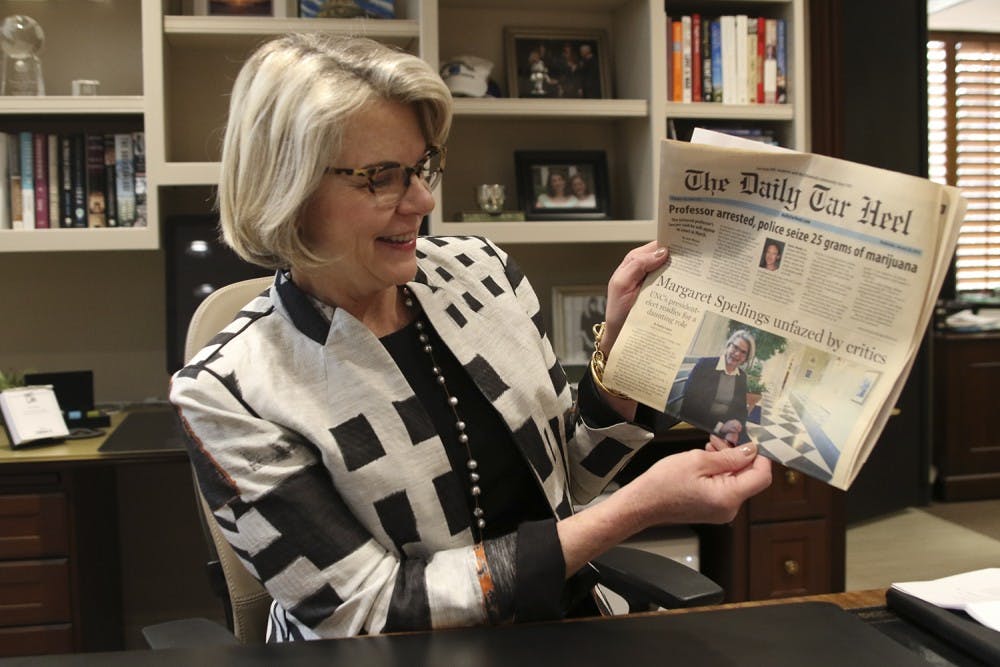UNC junior Mitch Xia was an organizer with the UNC BOG Democracy Coalition — an organization that protested Spellings’ selection.
Xia said Spellings is part of a broader trend within an increasingly white, male and Republican board.
“I don’t actually think that Spellings, herself, was directly responsible for a lot of the harmful things that the BOG has done,” they said. “I definitely think that she’s symptomatic of where they were already headed — what they were already doing.”
‘She knows where she wants to go’
Spellings said the board’s major goals will be informed by a plan unanimously adopted in January, which focuses on college affordability and access, among other topics.
“Major in the majors, as I like to say, not major in the minors,” she said.
Bissette said Spellings has been personal and down-to-earth in her role as UNC-system president.
“You know, she comes out with all these Texas sayings all the time,” he said. “She’s a great person to work with — she knows where she wants to go, but she’s also fun to be around.”
UNC-Chapel Hill Chancellor Carol Folt said she and Spellings have worked closely.
“I have been impressed with her vision and leadership, her warmth, humor and tireless determination to advance the impact and reach of higher education in North Carolina for the benefit of all people in our state,” Folt said in a statement.
To get the day's news and headlines in your inbox each morning, sign up for our email newsletters.
Robin Cummings, chancellor of UNC-Pembroke, said that if anything, Spellings overextends herself.
When the UNC-P campus was closed for around six days after Hurricane Matthew, Cummings said Spellings came to meet with staff and police officers who had waded through water to deliver bagged food.
“She was down here with some of her staff, and people were really again taken aback,” he said. “That was a very emotional time for some of our folks.”
‘Sometimes you need to speak out’
Spellings, who has publicly addressed House Bill 2 and President Donald Trump’s executive order on immigration, said she comments on a case-by-case basis.
“Sometimes you need to speak out because you want to make sure that your institution, your views are represented as people are deciding and working on things. And that’s part of the job — you want to be a forceful advocate for the university,” she said. “Sometimes it makes more sense to work behind the scenes and live to fight another day.”
Spellings wrote an op-ed in the Washington Post last week defending Deferred Action for Childhood Arrivals and advocating for undocumented young people.
“They’ve met our expectations, and now they want to pursue the ticket to their dreams and higher education,” she said. “And if we can’t have compassion for and support for and heart for those students, you know, shame on us.”
Bradley Opere, UNC student body president, said addressing DACA was a positive step for Spellings.
Madeline Finnegan, the president of the Association of Student Governments and the student voice in the Board of Governors, said she hopes to see Spellings now take more substantive action.
“Words are great, and I’d really love to see her take that to the next level by doing something about it,” she said.
Finnegan said Spellings has a unique perspective and recognizes her tact in interactions with legislators.
Finnegan also understands the political implications at play when Spellings or the UNC system comment on state or federal actions.
“I understand that it’s difficult to turn words into action,” she said. “But from a student perspective, I want my leaders to be courageous.”
state@dailytarheel.com




